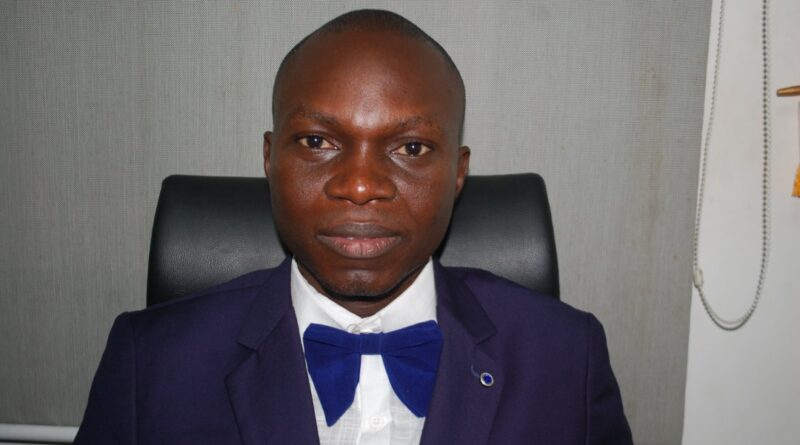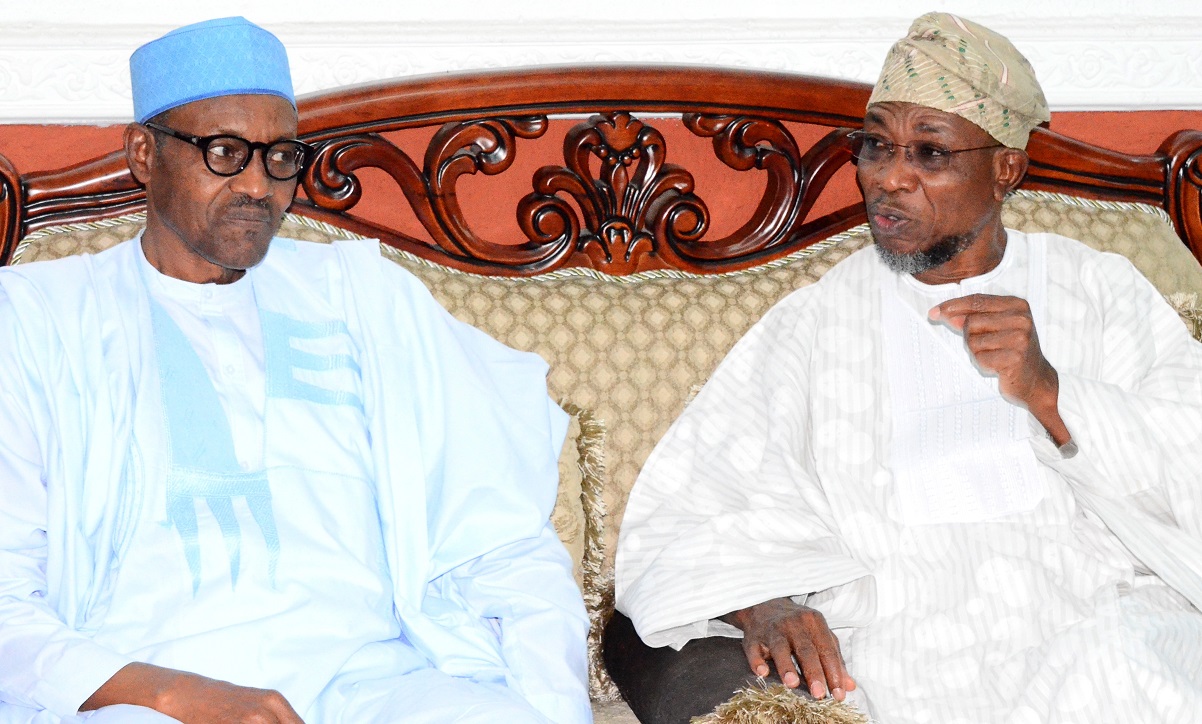Communiqué of 1-Day High Level Discussion organised by Triune Foundation with the theme: A New Nigeria Leadership Imperatives for Radical Growth and Transformation held at Lagos Marriott Hotel, Ikeja GRA, Friday, May 19, 202
Preamble
A summit conveyed by Triune Foundation a non-governmental organisation held at the Lagos Marriott Hotel, Ikeja GRA, Friday, May 19, 2023. The Summit with the theme: A New Nigeria Leadership Imperatives for Radical Growth and Transformation became imperative against the backdrop of prevailing socio-economic and political challenges in the country. The summit is informed by the need to engage the new administration coming on board on May 29, 2023 on the basis of a well-articulated blueprint; drawing from knowledge-driven inputs of critical stakeholders. To this extent, Stakeholders cutting across professionals and other key stakeholders brainstormed to foster mutual understanding and to propel a united voice around common aspirations for a stable and progressive country.
The Summit received goodwill messages from the representatives of Nigerias President-elect, Senator Bola Ahmed Tinubu. The summit was attended by array of intellectuals, professionals, entrepreneurs, researchers, leaders of traditional institution, community leaders and non-state actors across sectors of Nigerian society including representatives of Nigerians in the Diaspora. Discussions at the Summit was enriched by virtual participation by stakeholders within and outside the country who made valuable contributions to deliberations.
The enormous challenges confronting the Nigerian State; particularly the dwindling economy, growing suspicions along ethnoreligious divides and the worsening insecurity situation that has compounded frustration amongst Nigerians were dispassionately examined by speakers. The Summit also deliberated on the challenges in the private and public sectors and the need to galvanize ideas that will trigger patriotic commitments in the quest to navigate the affairs of the country along the path of shared-prosperity. Discussions also centred around wide range concerns bordering on poor amenities; particularly epileptic electricity and inadequacies of social incentives such as financial support and credit facilities which constitute impediment to entrepreneurship and by consequently aggravate the miseries of a large section of the population.
Presentations and panel discussions
Keynote speakers and other lead presenters assessed the prevailing situations in key sectors of governance namely Agriculture, Corruption, Entrepreneurship, Roles of Women and Youth in Governance, the Judiciary and Rule of Law, Public Sector Reform, Security, Education, Economy and Foreign Direct Investment, ICT and Cybercrime. Discussions at summit held at plenary and panel sessions with robust contributions from participants. Presentations alluded to the patriotic zeal of Nigerians as evident in the recognition being accorded at the global stage. Presentation reiterated the imperative of value-based politics in deepening democracy for overall goal of good governance. The imperatives of the attributes of probity, transparency, accountability as well as fairness and equity in politics and governance as a step towards restoring faith in the Nigerian project were highlighted with elaborated recommendations proffered for consideration by the incoming administration.
Observations
In the the quest to fashion a roadmap for a new Nigeria under the new dispensation, the summit arrived at the following observations:
Trust deficit remains a critical challenge of governance which must be recognised by political leadership and factored into decision-making by the new administration.
Nigerians are yearning for compassionate leadership which makes responsibility of building trust through inclusive engagement a critical imperative for the new administration.
The incoming leadership should not alienate itself from the reality of prevailing challenges in the country and must be seen to connect with the hope and aspiration of the masses.
Summit observed the predilection for politics and alienation and increasing appetite for state capture amongst the ruling elite to the exclusion of a large section of the populace leading to disenchantment in the country.
Without necessarily foreclosing the desirability of tough decisions by the new administration when and if necessary, summit observed the need for consultation and feedback to keep citizens and key stakeholders abreast of development.
Summit observed the need to prioritise supremacy of the rule of law and constitutional democracy as the bedrock of democratic process.
Summit observed the asphyxiating loans burden and the accompanying debt servicing costs with grave concerns and therefore call for reevaluation of public borrowing policy and debt management regime.
Summit observed that statistics of abandoned projects across the country has become alarming and therefore requires proper evaluation project planning and implementation so as to put an end to waste and grandiose capital expenditures.
Summit observed the desirability of constitution reforms to address identifiable grey areas that underpin agitations for restructuring and inclusive democracy.
Summit observed the improvements in the electoral system through the introduction of technology but however observed that manipulative interference of political actors in the conduct of elections impugn on the independence of the Electoral Body and yet remain a challenge to be surmounted.
Summit observed the need to entrench due process and accountability at all layers of governance so as to curtail the hydra-headed monster of corruption.
Summit observed the need to urgently reform security institution particularly the police to demonstrate renewed commitment to protect the citizens and promote the goal of free, democratic society.
Summit observed the ICT and the digital sector as emerging front in revenue earning for the Nigerian economy and therefore urged the new administration to leverage the potentials in advancing reforms in critical sectors; particularly the power and energy subsectors which are strategic to national development.
Summit observed that value reorientation and call to patriotism are crucial in repositioning the country for enviable future and therefore resolved to demand greater commitment to integrity and selfless service from the private sectors and non-state actors.
Summit observed that the private sector should interface with governance by offering useful and realistic proposals the light of the ballooning population in the country, the slow economic growth trajectory, inflation, largely subsistence and import dependent economy.
Summit observed the need for clearly articulated vision for national growth and development with specific targets that must be realistic and implementable with the indices for evaluation.
Summit observed that existing tariff regime in the power sector should be looked into towards addressing peculiar concerns of manufacturers, other categories of consumers and in particular low-income earners and the rural populace.
Summit observed that greater attention must be shifted to development finance backed up with improved manpower base through skill acquisition and exposures to technology tools that drive digital economy.
Proposals and Recommendations
Summit resolved that the new government to be inaugurated on May 29, 2023 should prioritise excellence in government by ensuring that competence and integrity are critical elements for consideration in public appointments; particularly in critical sectors of the economy and security: The summit proffered the following as proposals and recommendations for consideration by the incoming government in some critical sectors of governance
Politics Summit proposes investments in welfare programs to enhance economic empowerment as panacea to the scourge of poverty in the country.
Summit recommends sustained engagement collaborate with actors across the private sectors as a way of stimulating investments in social programs that promote the welfare of the generality of the people.
Summit recommends commitment to ending the culture of political impunity which engenders corruption, promotes monetization of politics and undermines competence and commitment to patriotism.
SecuritySummit recommends greater sense of accountability on the part of government in addressing the pervasive insecurity in the country.
Summit proposes the localization of security architecture and commands to enhance inclusive participation in neighborhood security across Nigeria.
Summit recommends greater commitment to the reform of security institution with enabling relevant laws and regulations put in place to encourage participation of sub-national governments
Summit recommends state police and relevant security architecture with command structures at the state and local government levels respectively.
Public sector reformsSummit recommends civil service reform to restore the pride of place of technocrats in the formulation, design and implementation of public programs
Summit recommends better performance from the public servants through adherence to the ethics and best practices.
Summit proposes the review of reward system to address neglects and frustration that often trigger institutional corruption which undermining the public sector and hinder service delivery.
GovernanceSummit maintained proposes reform of the Constitution of the Federal Republic of Nigeria to reflect the demands for a restructured federalism to guarantee fiscal responsibility, accountability in governance, security as well as to enhance accelerated development across Nigeria.
Summits recommends institutional strengthening to safeguard democracy and guarantee pro-people governance and responsibility from political actors.
Summit recommends the strengthening of local government system to deepen democracy and governance at the grassroots; particularly the rural dwellers
`Housing
Summit recommends prioritisation of mortgage as panacea to the acute challenge of housing.
Summit recommends provision of affordable housing through incentives to reduce costs of construction through bulk-purchase and masses-friendly housing scheme
Corruption Summit proposes that the incoming administration should address endemic corruption head long; noting that pervasive corruption undermines best of intention and therefore must be tackled with sincerity and commitment.
Summit recommends the strengthening of anti-corruption policies to address systemic abuses in financial institutions as well as in public as well as private sectors.
Education, research and development
Summit recommends increase in budgetary allocation to education as well as for research and development to encourage scholarship and promote talents.
Summits recommends that the perennial crisis in the education sector should be curtailed to stabilise the education system and to enhance the enhance Nigerias human capital development.
Summit recommends priority attention and investments in primary education which is the bedrock of leaning and character building.
Skill acquisition and entrepreneurship
Summit recommends prioritization of skills acquisition, capacity development and entrepreneurship support for youths and women across the country as a way of tackling the growing rate of poverty and challenges of unemployment.
Agriculture
Summit recommends improved investments in Agriculture by government and the private sector.
Summit recommends improved incentives for youth and women to promote skill acquisition in agricultural production and to stimulate entrepreneurship in support Agro-allied industry.
Summit recommends utilization of carbon credit to stimulate finance of the agricultural sector.
Summit recommends incentives for local (small holder) farmers to stimulate contribution to food value chain and curtail food insecurity.
Health
Summit recommends greater to the acute challenge of brain drain which has almost render the health sector comatose.
Summit recommends improved funding of the health sector and prioritise payment of earned allowances to medical doctors and health professionals.
Summit proposes concerted efforts towards improving healthcare facilities to reduce attraction for medical tourism; particularly amongst the public servants.
Economy
Summit recommends urgent and decisive measures towards addressing prevailing suffocating economic challenges in the country.
Summit recommends deliberate urgent actions towards changing the narrative of suffocating loan burden and the attendant costs of debt servicing.
Summit recommends the revitalization of the manufacturing sector to put an end to pervasive regime of import substitution and the attendant depletion of foreign exchange.
Women and Youth Empowerment
Summit recommends massive investment in women and youth empowerment by the three tiers of government; namely the federal, states and local government councils
Summit proposes credit support to cooperative societies and community-based groups towards entrepreneurship development for women and the youth.
Conclusion
Participants applauded Triune Foundation for organizing the summit which has contributed to advancing debates and consensus for a united, peaceful and prosperous Nigeria. The Summit resolved to deepen engagement with political actors; particularly the President-elect towards pursuing a common agenda of radical growth and transformation of the country.
Signed
Pastor Jeremiah Akinsele
Founder, Triune Foundation


